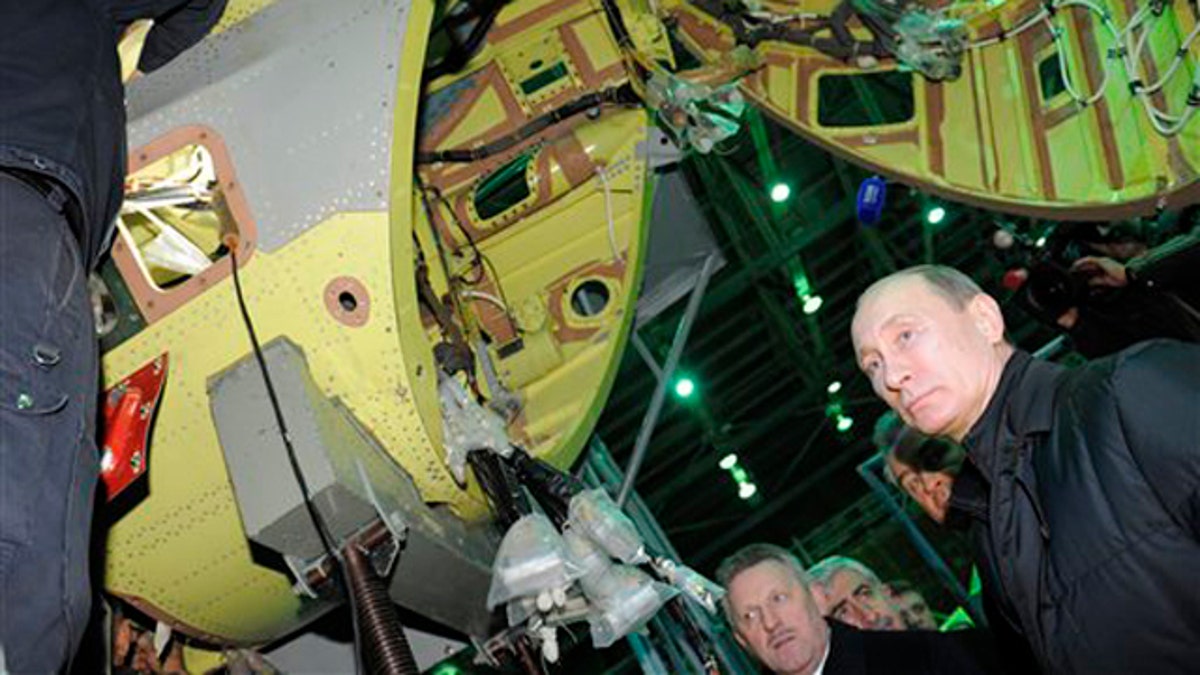
Feb. 20, 2012: Russian Prime Minister and presidential candidate Vladimir Putin, right, listens to an explanation during a visit to Komsomolsk-on-Amur Aircraft Building Corporation in Komsomolsk-on-Amur about 3,900 miles east of Moscow. (AP)
MOSCOW – Russia's Prime Minister Vladimir Putin warned against a military intervention in Syria and an attack on Iran and claimed that the West had backed the Arab Spring revolts to advance its interests in the region.
Instead of promoting democracy the Arab Spring had given rise to religious extremism, Putin said in an article published Monday in the Moscow News daily.
The article outlined Putin's foreign policy platform ahead of next Sunday's election, in which he is all but certain to reclaim the presidency.
Putin defended a Russia-China veto of a United Nations resolution condemning Syrian President Bashar Assad's crackdown on protests, saying that Moscow wouldn't allow the replay of what happened in Libya where NATO airstrikes helped Libya's rebels oust Moammar Gadhafi's regime.
"Learning from that bitter experience, we are against any U.N. Security Council resolutions that could be interpreted as a signal for a military interference into domestic processes in Syria," Putin said.
He said that any attempt to launch a military action without a U.N. approval would undermine the world body's role and hurt global security.
"I strongly hope that the United States and other nations will learn from the sad experience and wouldn't try to resort to a forceful scenario in Syria," Putin said. "I can't understand that bellicose itch."
Activists estimate that close to 7,500 people have been killed in the 11 months since the Assad regime's brutal crackdown on dissent began.
Putin said both the government and opposition forces must pull out of populated areas to end bloodshed, adding that the Western refusal to demand that from Assad's opponents was "cynical."
Syria is Russia's last remaining ally in the Middle East. Moscow has maintained close ties with Damascus since the Cold War, when Syria was led by the current leader's father, Hafez Assad.
Putin said that the Russian companies lost ground in the countries engulfed by the Arab Spring uprisings and are being replaced by firms from the nations that backed the regime change there.
"That raises a thought that the tragic events to some extent had been driven not by concern about human rights, but a desire by some to redistribute markets," he said. "We mustn't watch that with an Olympian calm."
